Euro ramblings – Arrivederci or Adios? By Jade Craddock
Italy v Spain (Wembley Stadium)
Today sees the clash between two heavyweights of the footballing world, with a combined nine World Cup and Euro Championships between them. Despite their combined footballing pedigree, one of them will be heading for the door marked EXIT at the end of the game. Ahead of the Semi-Final fixture, here’s a round-up of five icons of each team whose autobiographies – either already published or which would be worth publishing – would make for a good read.
Italy
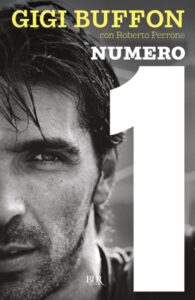 Gianluigi Buffon – The most capped player for The Azzurri with 176 appearances to his name – and the second-most capped European international – Buffon’s national career spanned some 21 years, in which time he won the World Cup in 2006 and the Golden Glove in the same year. He also has the most appearances for Italy as captain. Domestically, his senior career started in 1995 with Parma, before a 17-year spell, comprising 509 appearances for Juventus, followed by a short spell at PSG before he returned to The Old Lady in 2019. Buffon won a host of awards, just missing out on the Ballon d’Or in 2006, and holds a multitude of records, including most appearances in Serie A and most minutes played for Juventus – his 61,412 minutes for the club equating to some 1,023 hours or 42 days! His autobiography, Numero 1, was published in Italian in 2009, but surely it’s time for an update.
Gianluigi Buffon – The most capped player for The Azzurri with 176 appearances to his name – and the second-most capped European international – Buffon’s national career spanned some 21 years, in which time he won the World Cup in 2006 and the Golden Glove in the same year. He also has the most appearances for Italy as captain. Domestically, his senior career started in 1995 with Parma, before a 17-year spell, comprising 509 appearances for Juventus, followed by a short spell at PSG before he returned to The Old Lady in 2019. Buffon won a host of awards, just missing out on the Ballon d’Or in 2006, and holds a multitude of records, including most appearances in Serie A and most minutes played for Juventus – his 61,412 minutes for the club equating to some 1,023 hours or 42 days! His autobiography, Numero 1, was published in Italian in 2009, but surely it’s time for an update.
 Fabio Cannavaro – Italy has always been blessed with enviable defensive talent – Baresi, Maldini, Nesta, as well as the current crop of Bonucci, Chiellini, Spinazzola and Di Lorenzo, but it was Fabio Cannavaro who captained The Azzurri to their first World Cup triumph in almost a quarter of a century. The centre-back represented his nation across thirteen years, notching up some 136 caps, having already won consecutive European U21 championships in 1994 and 1996. He featured for Italy at four World Cups, two Euros, an Olympics and a Confederations Cup. His domestic career took in Napoli, Parma, Inter Milan, Juventus and Real Madrid and he won the 2006 Ballon d’Or. His book – La Nostra Bambina – was published in Italian in 2016.
Fabio Cannavaro – Italy has always been blessed with enviable defensive talent – Baresi, Maldini, Nesta, as well as the current crop of Bonucci, Chiellini, Spinazzola and Di Lorenzo, but it was Fabio Cannavaro who captained The Azzurri to their first World Cup triumph in almost a quarter of a century. The centre-back represented his nation across thirteen years, notching up some 136 caps, having already won consecutive European U21 championships in 1994 and 1996. He featured for Italy at four World Cups, two Euros, an Olympics and a Confederations Cup. His domestic career took in Napoli, Parma, Inter Milan, Juventus and Real Madrid and he won the 2006 Ballon d’Or. His book – La Nostra Bambina – was published in Italian in 2016.
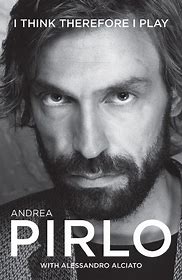 Andrea Pirlo – Few players enter the football psyche quite like midfield maestro Andrea Pirlo. Starting out at Brescia, his career took him to three of Italian football’s biggest hitters, in Inter Milan, AC Milan and Juventus, where he did the clean sweep of Serie A, Coppa Italia, Supercoppa Italia, Champions League, Super Cup and Club World Cup. His national career saw him appear at every age range from U15 through to the senior team, for which he made 116 appearances and scored 13 goals and was intrinsic to the 2006 World Cup triumph. He was man of the match in the World Cup Final and finished as the top assist maker in the tournament. His book, I Think, Therefore I Play, was published in 2014.
Andrea Pirlo – Few players enter the football psyche quite like midfield maestro Andrea Pirlo. Starting out at Brescia, his career took him to three of Italian football’s biggest hitters, in Inter Milan, AC Milan and Juventus, where he did the clean sweep of Serie A, Coppa Italia, Supercoppa Italia, Champions League, Super Cup and Club World Cup. His national career saw him appear at every age range from U15 through to the senior team, for which he made 116 appearances and scored 13 goals and was intrinsic to the 2006 World Cup triumph. He was man of the match in the World Cup Final and finished as the top assist maker in the tournament. His book, I Think, Therefore I Play, was published in 2014.
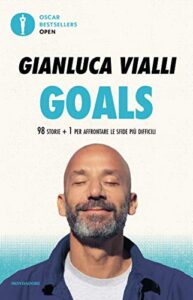 Gianluca Vialli – The Premier League has welcomed over 70 Italian players since its inception in 1992, including the likes of Dino Baggio, Massimo Maccarone and Fabrizio Ravenelli, but amongst the greatest imports is one Gianluca Vialli, who called Chelsea his home for three years, making 58 appearances and scoring 21 goals. Prior to his move to England, Vialli had represented Cremonese, Sampdoria and Juventus and is the only forward to have won the three main European competitions. He made 59 appearances for The Azzurri across seven years and scored 16 goals, and although there are perhaps more prolific and significant Italian strikers in the likes of Rossi, Baggio et al, Vialli’s health struggles in recent times make his book Goals – published in May – an important read. A previous autobiography, The Italian Job, is also available, whilst La Bella Stagione by Vialli and Roberto Mancini was published in Italian earlier this year.
Gianluca Vialli – The Premier League has welcomed over 70 Italian players since its inception in 1992, including the likes of Dino Baggio, Massimo Maccarone and Fabrizio Ravenelli, but amongst the greatest imports is one Gianluca Vialli, who called Chelsea his home for three years, making 58 appearances and scoring 21 goals. Prior to his move to England, Vialli had represented Cremonese, Sampdoria and Juventus and is the only forward to have won the three main European competitions. He made 59 appearances for The Azzurri across seven years and scored 16 goals, and although there are perhaps more prolific and significant Italian strikers in the likes of Rossi, Baggio et al, Vialli’s health struggles in recent times make his book Goals – published in May – an important read. A previous autobiography, The Italian Job, is also available, whilst La Bella Stagione by Vialli and Roberto Mancini was published in Italian earlier this year.
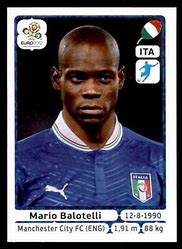 Mario Balotelli – Mario Balotelli may not be the first name that comes to mind when you think of Italian strikers, but let’s be honest, if there is any footballer with a story to tell it’s surely this former Man City maverick. His stats for Italy are fairly impressive, with some 14 goals in only 36 appearances, in which time he featured at Euro 2012, the 2013 Confederations Cup and the 2014 World Cup and, interestingly, he is both the Azzurri’s joint top scorer in the European Championship and Confederations Cup. In his domestic career, Balotelli has played in three of Europe’s biggest leagues, as well as representing two of English football’s biggest hitters in Manchester City and Liverpool. Whilst an autobiography is yet to be published, if you’re looking for something to fill the void, Francesco Totti is not a bad replacement and his book, Gladiator, is slated for publication in English in September.
Mario Balotelli – Mario Balotelli may not be the first name that comes to mind when you think of Italian strikers, but let’s be honest, if there is any footballer with a story to tell it’s surely this former Man City maverick. His stats for Italy are fairly impressive, with some 14 goals in only 36 appearances, in which time he featured at Euro 2012, the 2013 Confederations Cup and the 2014 World Cup and, interestingly, he is both the Azzurri’s joint top scorer in the European Championship and Confederations Cup. In his domestic career, Balotelli has played in three of Europe’s biggest leagues, as well as representing two of English football’s biggest hitters in Manchester City and Liverpool. Whilst an autobiography is yet to be published, if you’re looking for something to fill the void, Francesco Totti is not a bad replacement and his book, Gladiator, is slated for publication in English in September.
Spain
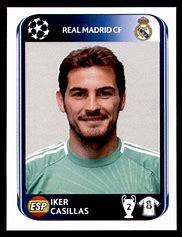 Iker Casillas – With 167 caps to his name across a 16-year stint, Iker Casillas is the second most capped player in Spain’s history and amongst the most iconic goalkeepers of a generation. Representing La Roja at U15 level all the way through to the senior team, he captained the side at the 2010 World Cup, where he led them to their first ever World Cup triumph, picking up the Yashin Award for best goalkeeper en route. He picked up two European Championship wins in 2008 and 2012, whilst at club level he won all major trophies in almost two decades at Real Madrid. With 1,119 appearances in his career, he is one of only some 32 players to have played over 1,000 times and has the record for the most clean sheets in the Champions League. No autobiography has yet been published but would be on the list for any football fans.
Iker Casillas – With 167 caps to his name across a 16-year stint, Iker Casillas is the second most capped player in Spain’s history and amongst the most iconic goalkeepers of a generation. Representing La Roja at U15 level all the way through to the senior team, he captained the side at the 2010 World Cup, where he led them to their first ever World Cup triumph, picking up the Yashin Award for best goalkeeper en route. He picked up two European Championship wins in 2008 and 2012, whilst at club level he won all major trophies in almost two decades at Real Madrid. With 1,119 appearances in his career, he is one of only some 32 players to have played over 1,000 times and has the record for the most clean sheets in the Champions League. No autobiography has yet been published but would be on the list for any football fans.
 Sergio Ramos – Despite being dropped from the Euro 2020 squad, Sergio Ramos remains the most capped Spanish player of all time, with 180 caps to his name, and 23 goals, and was the youngest Spanish player to reach 100 caps. Representing La Roja at four World Cups and three Euros, he has won one World Cup and two Euros trophies. Whilst his domestic career started at Sevilla, Ramos became a figurehead at Real Madrid, where he played some 469 games across a 16-year spell, winning five La Liga titles, two Copa del Reys, four Supercopa de Espana, four Champions Leagues, three Super Cups and four Club World Cups. Having been surprisingly let go from Madrid this summer, his future is yet to be determined, but perhaps a move to the Premier League could prove his swansong and add a nice chapter to a potential autobiography.
Sergio Ramos – Despite being dropped from the Euro 2020 squad, Sergio Ramos remains the most capped Spanish player of all time, with 180 caps to his name, and 23 goals, and was the youngest Spanish player to reach 100 caps. Representing La Roja at four World Cups and three Euros, he has won one World Cup and two Euros trophies. Whilst his domestic career started at Sevilla, Ramos became a figurehead at Real Madrid, where he played some 469 games across a 16-year spell, winning five La Liga titles, two Copa del Reys, four Supercopa de Espana, four Champions Leagues, three Super Cups and four Club World Cups. Having been surprisingly let go from Madrid this summer, his future is yet to be determined, but perhaps a move to the Premier League could prove his swansong and add a nice chapter to a potential autobiography.
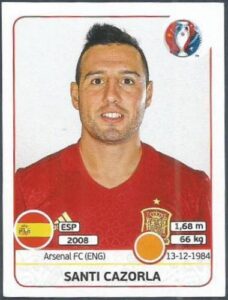 Santi Cazorla – It’s practically impossible to choose between the incredible midfielders that Spain have been endowed with in the last decade alone. Where do you start in separating the likes of Xavi, Fabregas, David Silva, Xabi Alonso, Juan Mata… But when it comes to personality to match their talent, Santi Cazorla is perhaps in a league of his own. Despite competing against these Spanish heavyweights, Cazorla achieved 81 caps for La Roja, scoring 15 times and was Spain’s Player of the Year in 2007. His domestic career took in Villareal, Recreativo Huelva and Malaga in Spain, but he made his name in the Premier League in a six-year spell at Arsenal, where he faced a career-threatening injury. Whilst Juan Mata is the only one of these midfield options to have an autobiography to his name (Suddenly a Footballer), Cazorla et al are surely each worthy of their own tomes.
Santi Cazorla – It’s practically impossible to choose between the incredible midfielders that Spain have been endowed with in the last decade alone. Where do you start in separating the likes of Xavi, Fabregas, David Silva, Xabi Alonso, Juan Mata… But when it comes to personality to match their talent, Santi Cazorla is perhaps in a league of his own. Despite competing against these Spanish heavyweights, Cazorla achieved 81 caps for La Roja, scoring 15 times and was Spain’s Player of the Year in 2007. His domestic career took in Villareal, Recreativo Huelva and Malaga in Spain, but he made his name in the Premier League in a six-year spell at Arsenal, where he faced a career-threatening injury. Whilst Juan Mata is the only one of these midfield options to have an autobiography to his name (Suddenly a Footballer), Cazorla et al are surely each worthy of their own tomes.
 Andres Iniesta – One man missing from that midfield list is none other than Andres Iniesta – a player who won La Liga’s Best Spanish player in 2009, was five times La Liga’s Best Midfielder, featured in nine consecutive FIFA FIFPro World11’s, six UEFA Teams of the Year, the 2010 FIFA World Cup Dream Team, won UEFA’s Best Player in Europe Award in 2012 and the Euro Player of the Tournament in the same year… you get the drift. With Spain, Iniesta won the World Cup and two Euros, being named man of the match in the 2010 World Cup Final and the Euro 2012 Final, and notched 131 caps for La Roja, scoring 13 goals across a 12-year spell. His domestic career was spent predominantly at Barcelona, where he made 442 appearances, and won 35 trophies, including two trebles, in 2009 and 2015. His autobiography, aptly named The Artist, was published in English in 2016.
Andres Iniesta – One man missing from that midfield list is none other than Andres Iniesta – a player who won La Liga’s Best Spanish player in 2009, was five times La Liga’s Best Midfielder, featured in nine consecutive FIFA FIFPro World11’s, six UEFA Teams of the Year, the 2010 FIFA World Cup Dream Team, won UEFA’s Best Player in Europe Award in 2012 and the Euro Player of the Tournament in the same year… you get the drift. With Spain, Iniesta won the World Cup and two Euros, being named man of the match in the 2010 World Cup Final and the Euro 2012 Final, and notched 131 caps for La Roja, scoring 13 goals across a 12-year spell. His domestic career was spent predominantly at Barcelona, where he made 442 appearances, and won 35 trophies, including two trebles, in 2009 and 2015. His autobiography, aptly named The Artist, was published in English in 2016.
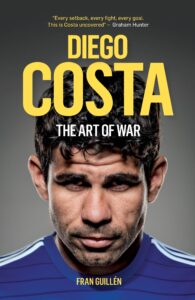 Diego Costa – While Raul and Fernando Torres may take the accolades as Spain’s top strikers in recent years, the mercurial Diego Costa is an autobiography dream. His international appearances may have been limited to only 24, but he managed 10 goals in that time. Meanwhile, his domestic career has seen him traverse Portugal, Spain and England, moving from Braga to Atletico Madrid to Valladolid, back to Atletico, before heading to Chelsea, and returning once more to Atleti. Despite his nomadic career, he’s racked up two La Liga triumphs, a Copa del Rey, Europa League success, three Super Cups, as well as two Premier League titles and a Football League Cup, and interest (and controversy) has followed him along the way. Fran Guillen’s book, Diego Costa: The Art of War, perhaps sums up the image of the man, but it would be fascinating to get a more personal insight into his character. And in terms of a head-to-head, it doesn’t get much better than him and Balotelli.
Diego Costa – While Raul and Fernando Torres may take the accolades as Spain’s top strikers in recent years, the mercurial Diego Costa is an autobiography dream. His international appearances may have been limited to only 24, but he managed 10 goals in that time. Meanwhile, his domestic career has seen him traverse Portugal, Spain and England, moving from Braga to Atletico Madrid to Valladolid, back to Atletico, before heading to Chelsea, and returning once more to Atleti. Despite his nomadic career, he’s racked up two La Liga triumphs, a Copa del Rey, Europa League success, three Super Cups, as well as two Premier League titles and a Football League Cup, and interest (and controversy) has followed him along the way. Fran Guillen’s book, Diego Costa: The Art of War, perhaps sums up the image of the man, but it would be fascinating to get a more personal insight into his character. And in terms of a head-to-head, it doesn’t get much better than him and Balotelli.
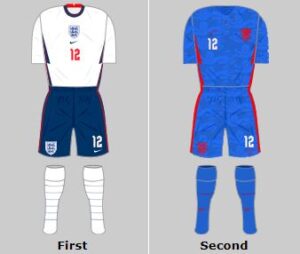
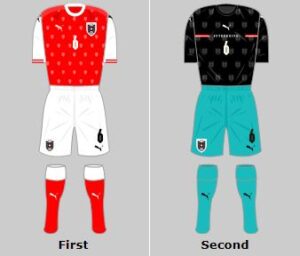
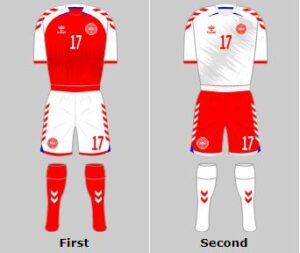
 No more Number Ones: The Round of 16 saw the departure of both the Euro reigning champions Portugal and the reigning World Champions, and pre-tournament favourites, France, and the Quarter-Finals delivered up yet another scalp, this time in the form of the number-one ranked nation – Belgium. In truth, it sometimes feels like the FIFA rankings can be taken with a pinch of salt, but nonetheless, there were definitely high hopes for the Red Devils both coming into the tournament and after an impressive unbeaten run in the first four matches, which saw them knock out Portugal. Their squad has been spoken of in recent years as a Golden Generation, with the likes of Courtois, Vertonghen, De Bruyne, Hazard and Lukaku – to name a fearsome five-a-side. But, as we all know too well, a Golden Generation doesn’t guarantee success, and there was no escaping the fact that this was Belgium’s crop. Going into their Quarter-Final with Italy, the Red Devils had enjoyed a fairly easy and uncomplicated journey thus far, but in a reinvigorated Azzurri, their biggest test was to come, and once more they came up short. Yes, there were some Italian theatrics and questionable antics, but, in truth, Belgium never really looked like a team who were up to the challenge of their counterparts. A 2-1 defeat was enough to see them bow out of yet another promising tournament having failed to live up to their golden billing.
No more Number Ones: The Round of 16 saw the departure of both the Euro reigning champions Portugal and the reigning World Champions, and pre-tournament favourites, France, and the Quarter-Finals delivered up yet another scalp, this time in the form of the number-one ranked nation – Belgium. In truth, it sometimes feels like the FIFA rankings can be taken with a pinch of salt, but nonetheless, there were definitely high hopes for the Red Devils both coming into the tournament and after an impressive unbeaten run in the first four matches, which saw them knock out Portugal. Their squad has been spoken of in recent years as a Golden Generation, with the likes of Courtois, Vertonghen, De Bruyne, Hazard and Lukaku – to name a fearsome five-a-side. But, as we all know too well, a Golden Generation doesn’t guarantee success, and there was no escaping the fact that this was Belgium’s crop. Going into their Quarter-Final with Italy, the Red Devils had enjoyed a fairly easy and uncomplicated journey thus far, but in a reinvigorated Azzurri, their biggest test was to come, and once more they came up short. Yes, there were some Italian theatrics and questionable antics, but, in truth, Belgium never really looked like a team who were up to the challenge of their counterparts. A 2-1 defeat was enough to see them bow out of yet another promising tournament having failed to live up to their golden billing.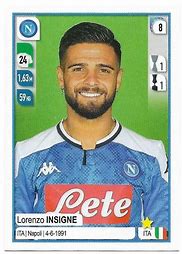 Swapping… shorts: The gifting of shirts after a match has long been a custom in football, but seeing a Y-front-clad Giovanni Di Lorenzo, who had ‘gifted’ his shorts to some lucky (?) recipient, after Italy’s win was a new one on me, although Jurgen Klinsmann reliably informed viewers that this was common practice in Italy… hmmm. A sweaty shirt given away is one thing, but shorts, really? At least with shirts, they have the name on the back and all of the added details that these days adorn the front – the fixture, date, inside-leg measurement – well, perhaps not the last one, but it seems to be going that way. But what do you get with shorts, apart from the number and team badge? What’s to say, in your dotage, you’ll even remember who was Italy’s number 2 at some point in the past? No, give me a shirt any day, thank you. Although that brings me to the whole shirt-swapping practice between players (look away now, Roy Keane). I’ve always wondered how this is negotiated. Does a player have his sights on an opposite number from the get-go? Are negotiations made before the match or is there an approach during or at half-time? Is there a mad rush to get the star’s shirt at the end of the match and it’s all down to a first-come first-served basis? Or does the shirt giver get to bestow his shirt on the lucky recipient? And what of the shirt giver, is he obliged to take the shirt of his opposite number even if he’s absolutely no inclination/knowledge of him? It’s surely pretty bad etiquette to refuse. I imagine Messi and Ronaldo must have quite the collection of random players’ shirts amassed somewhere. And what of the poor players who never get asked for their shirts – well, I guess they could always start giving away their shorts – or perhaps their socks if it comes to it.
Swapping… shorts: The gifting of shirts after a match has long been a custom in football, but seeing a Y-front-clad Giovanni Di Lorenzo, who had ‘gifted’ his shorts to some lucky (?) recipient, after Italy’s win was a new one on me, although Jurgen Klinsmann reliably informed viewers that this was common practice in Italy… hmmm. A sweaty shirt given away is one thing, but shorts, really? At least with shirts, they have the name on the back and all of the added details that these days adorn the front – the fixture, date, inside-leg measurement – well, perhaps not the last one, but it seems to be going that way. But what do you get with shorts, apart from the number and team badge? What’s to say, in your dotage, you’ll even remember who was Italy’s number 2 at some point in the past? No, give me a shirt any day, thank you. Although that brings me to the whole shirt-swapping practice between players (look away now, Roy Keane). I’ve always wondered how this is negotiated. Does a player have his sights on an opposite number from the get-go? Are negotiations made before the match or is there an approach during or at half-time? Is there a mad rush to get the star’s shirt at the end of the match and it’s all down to a first-come first-served basis? Or does the shirt giver get to bestow his shirt on the lucky recipient? And what of the shirt giver, is he obliged to take the shirt of his opposite number even if he’s absolutely no inclination/knowledge of him? It’s surely pretty bad etiquette to refuse. I imagine Messi and Ronaldo must have quite the collection of random players’ shirts amassed somewhere. And what of the poor players who never get asked for their shirts – well, I guess they could always start giving away their shorts – or perhaps their socks if it comes to it.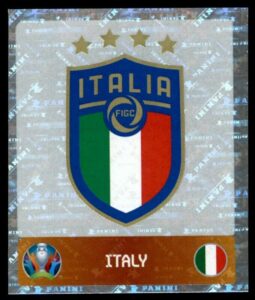 Hugs and kisses: Was it just me or did anyone else watch the Italy players go to the fans to celebrate their victory over Belgium, where they embraced the crowd and got pulled into hugs and high fives, and think ‘social distancing, guys’? A sight like this would have been a heart-warming, nation-rousing spectacle eighteen months ago, but in these COVID times, all I could think was ‘two metres’. In their jubilation, Chiellini et al clearly forgot the protocol – hands, face, space, anyone? – and were whisked back to those halcyon days when they could be manhandled by fans. Oh, how we all wish to celebrate like that, but it seemed a miscalculated risk. Though, in the joy of victory, it’s hard to quell natural reactions such as these, and let’s be honest, the Azzurri are a pretty passionate bunch anyway – one only needs to see Gianluigi Donnarumma’s response to Leonardo Spinazzola’s block from Lukaku to recognise that. The sooner we get back to players jumping around with fans the better, but for now, it may be wise to stick to just giving your shorts away.
Hugs and kisses: Was it just me or did anyone else watch the Italy players go to the fans to celebrate their victory over Belgium, where they embraced the crowd and got pulled into hugs and high fives, and think ‘social distancing, guys’? A sight like this would have been a heart-warming, nation-rousing spectacle eighteen months ago, but in these COVID times, all I could think was ‘two metres’. In their jubilation, Chiellini et al clearly forgot the protocol – hands, face, space, anyone? – and were whisked back to those halcyon days when they could be manhandled by fans. Oh, how we all wish to celebrate like that, but it seemed a miscalculated risk. Though, in the joy of victory, it’s hard to quell natural reactions such as these, and let’s be honest, the Azzurri are a pretty passionate bunch anyway – one only needs to see Gianluigi Donnarumma’s response to Leonardo Spinazzola’s block from Lukaku to recognise that. The sooner we get back to players jumping around with fans the better, but for now, it may be wise to stick to just giving your shorts away.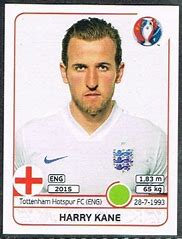 Golden Boot: Ronaldo may have bid farewell to Euro 2020, but with him he took a host of records, and there is surely one more accolade still in his sights, as he lies back on a beach somewhere, drinking water (not Coke) and taking in the conclusion of the tournament – Golden Boot. Whilst Patrick Schick levelled up with Ronaldo’s five goals, with his strike against Denmark in the Quarter-Finals, the Portuguese must have breathed a sigh of relief when not only Schick, but Lukaku and Forsberg who were hot on his heels in the Golden Boot race, all crashed out of the tournament. However, it’s not quite signed, sealed and delivered for Ronaldo yet, for, whilst he sits pretty at the top of the charts with Schick on five goals, Denmark’s Kasper Dolberg’s strike against the Czech Republic lifted him up to three goals, alongside Raheem Sterling. And, there’s another contender, making a late – but timely – dash for it – none other than Harry Kane. He who was being written off in many quarters after failing to score in the opening three matches has taken his tally up to three in just two games, with time yet to improve on that. There are a number of other players with two goals to their name left in the tournament, including Insigne and Immobile of Italy, Morata and Torres of Spain, and Maehle and Poulsen of Denmark. In what has already been a topsy-turvy tournament, nothing can be taken for granted, and whilst Ronaldo and Schick may each have one hand on the Golden Boot, don’t rule out an Englishman spoiling their party.
Golden Boot: Ronaldo may have bid farewell to Euro 2020, but with him he took a host of records, and there is surely one more accolade still in his sights, as he lies back on a beach somewhere, drinking water (not Coke) and taking in the conclusion of the tournament – Golden Boot. Whilst Patrick Schick levelled up with Ronaldo’s five goals, with his strike against Denmark in the Quarter-Finals, the Portuguese must have breathed a sigh of relief when not only Schick, but Lukaku and Forsberg who were hot on his heels in the Golden Boot race, all crashed out of the tournament. However, it’s not quite signed, sealed and delivered for Ronaldo yet, for, whilst he sits pretty at the top of the charts with Schick on five goals, Denmark’s Kasper Dolberg’s strike against the Czech Republic lifted him up to three goals, alongside Raheem Sterling. And, there’s another contender, making a late – but timely – dash for it – none other than Harry Kane. He who was being written off in many quarters after failing to score in the opening three matches has taken his tally up to three in just two games, with time yet to improve on that. There are a number of other players with two goals to their name left in the tournament, including Insigne and Immobile of Italy, Morata and Torres of Spain, and Maehle and Poulsen of Denmark. In what has already been a topsy-turvy tournament, nothing can be taken for granted, and whilst Ronaldo and Schick may each have one hand on the Golden Boot, don’t rule out an Englishman spoiling their party.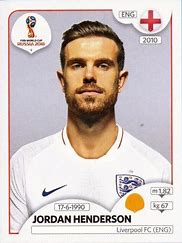 Three Lions: And, on that note, let’s turn to England and enjoy the moment – it doesn’t happen too often. After overcoming Germany, Ukraine were considered to be less of a challenge on paper, but, as any England fan knows, games aren’t won on paper – two words: Iceland, 2016. So, although hopes were raised going into the game, nobody was expecting an easy time of it, but in this craziest of times, we should have perhaps learned, if nothing else, to expect the unexpected, and in this case, the unexpected was one of the most comfortable victories in a knock-out stage in England’s history. After close contests with the Netherlands and Sweden, Ukraine shouldn’t have been a walkover, but I suspect that was as close to a walkover as is possible in tournament knock-out football. Admittedly, the early goal did England a lot of favours, and there was never really any danger from thereon out, as England scored four goals in a knockout stage for only the second time – the first, you ask? Some World Cup in 1966. Amongst the goal-scorers was Jordan Henderson who netted for the first time for his country in 62 appearances, taking perhaps the somewhat dubious honour of becoming the player with the longest wait for their first England goal – succeeding Sol Campbell (47 apps). Meanwhile, a fifth consecutive clean sheet in the tournament saw England progress to a total seven consecutive clean sheets for the first time ever – over 11 hours without conceding. And whilst the schooling of Ukraine was a collective effort, and a fairly routine one at that, Luke Shaw was amongst the most impressive performers, adding to his assists for the tournament and sitting joint second with Pierre-Emile Hojbjerg for three in the competition, with the departed Switzerland’s Zuber only one assist ahead. England certainly cruised into a Semi-Final return to Wembley against Denmark, with even the referee not wanting to prolong Ukraine’s agony, blowing up for full-time bang on 90 minutes before even the board denoting the additional minutes had been raised. Let’s hope it’s just as plain sailing through to the Final.
Three Lions: And, on that note, let’s turn to England and enjoy the moment – it doesn’t happen too often. After overcoming Germany, Ukraine were considered to be less of a challenge on paper, but, as any England fan knows, games aren’t won on paper – two words: Iceland, 2016. So, although hopes were raised going into the game, nobody was expecting an easy time of it, but in this craziest of times, we should have perhaps learned, if nothing else, to expect the unexpected, and in this case, the unexpected was one of the most comfortable victories in a knock-out stage in England’s history. After close contests with the Netherlands and Sweden, Ukraine shouldn’t have been a walkover, but I suspect that was as close to a walkover as is possible in tournament knock-out football. Admittedly, the early goal did England a lot of favours, and there was never really any danger from thereon out, as England scored four goals in a knockout stage for only the second time – the first, you ask? Some World Cup in 1966. Amongst the goal-scorers was Jordan Henderson who netted for the first time for his country in 62 appearances, taking perhaps the somewhat dubious honour of becoming the player with the longest wait for their first England goal – succeeding Sol Campbell (47 apps). Meanwhile, a fifth consecutive clean sheet in the tournament saw England progress to a total seven consecutive clean sheets for the first time ever – over 11 hours without conceding. And whilst the schooling of Ukraine was a collective effort, and a fairly routine one at that, Luke Shaw was amongst the most impressive performers, adding to his assists for the tournament and sitting joint second with Pierre-Emile Hojbjerg for three in the competition, with the departed Switzerland’s Zuber only one assist ahead. England certainly cruised into a Semi-Final return to Wembley against Denmark, with even the referee not wanting to prolong Ukraine’s agony, blowing up for full-time bang on 90 minutes before even the board denoting the additional minutes had been raised. Let’s hope it’s just as plain sailing through to the Final.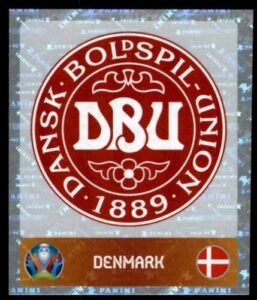 Czech Republic (0) 1 – 2 (2) Denmark
Czech Republic (0) 1 – 2 (2) Denmark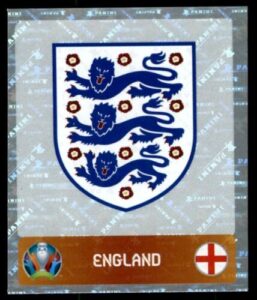 Ukraine (0) 0 – 4 (1) England
Ukraine (0) 0 – 4 (1) England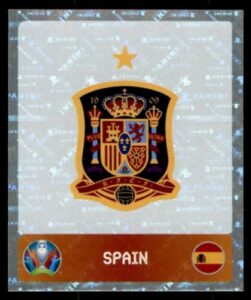



 Bye-bye to the big boys: Well, at least it’s farewell to a fair few of them, with the death knell sounding on all of the aptly named Group of Death teams, including reigning Euro champions Portugal, reigning World champions France and perennial contenders, Germany – three teams that many would have seen as being in it for the long haul, if not the actual winners. Netherlands, too, who, despite recent tournament disappointments, had looked so promising in the group stage fell at the first knockout hurdle, whilst Italy, who have impressed so much in the early stages, were pushed to the limits of extra-time by a team in Austria who many had written off before the starting whistle was blown. The early exit of these teams means that going into the Quarter-Finals, of the eight remaining teams, there are four nations who have previously won the tournament and four nations who have not – a 50/50 chance therefore that there will be a new national team lifting the trophy at Wembley. Of the teams who have already triumphed, Spain are the most recent victors in 2012 (with success also in 2008 and 1964), whilst Italy, the Czech Republic and Denmark all have one victory a piece, some 53 years ago for Italy, 45 years ago for the Czech Republic (then Czechoslovakia), and 29 years ago for Denmark. Of the teams still looking for their first Euro triumph, both Ukraine and Switzerland have surpassed their best Euros campaign already, by reaching the Quarter-Finals, whilst Belgium’s best result was as runners-up in 1980. As for England, only an appearance in the Final will guarantee their best ever showing at the Euros, having finished third in both 1968 and 1996, but why not finish the job?
Bye-bye to the big boys: Well, at least it’s farewell to a fair few of them, with the death knell sounding on all of the aptly named Group of Death teams, including reigning Euro champions Portugal, reigning World champions France and perennial contenders, Germany – three teams that many would have seen as being in it for the long haul, if not the actual winners. Netherlands, too, who, despite recent tournament disappointments, had looked so promising in the group stage fell at the first knockout hurdle, whilst Italy, who have impressed so much in the early stages, were pushed to the limits of extra-time by a team in Austria who many had written off before the starting whistle was blown. The early exit of these teams means that going into the Quarter-Finals, of the eight remaining teams, there are four nations who have previously won the tournament and four nations who have not – a 50/50 chance therefore that there will be a new national team lifting the trophy at Wembley. Of the teams who have already triumphed, Spain are the most recent victors in 2012 (with success also in 2008 and 1964), whilst Italy, the Czech Republic and Denmark all have one victory a piece, some 53 years ago for Italy, 45 years ago for the Czech Republic (then Czechoslovakia), and 29 years ago for Denmark. Of the teams still looking for their first Euro triumph, both Ukraine and Switzerland have surpassed their best Euros campaign already, by reaching the Quarter-Finals, whilst Belgium’s best result was as runners-up in 1980. As for England, only an appearance in the Final will guarantee their best ever showing at the Euros, having finished third in both 1968 and 1996, but why not finish the job? Underdogs: Who doesn’t love an underdog story (aside from those on the wrong end of said underdog story, of course)? And the Round of 16 delivered its fair share, after some generally predictable results in the group stages. Both Austria and Croatia gave it their best shot, with Austria denying what had been a rampant Italy side for some 95 minutes before the Azzurri broke the deadlock. But even when Italy doubled their lead, Austria ensured a dramatic finale by getting one back in the 114th minute, but, alas, it wasn’t to be. Whilst, in the Spain game, La Roja were nearly victims of their own possession-based success when Unai Simon ceded a goal against the run of play to that most prolific of Euro 2020 marksman – Own Goal – with the Euros longest ever own goal, some 49 yards out. When Spain brought it back to a seemingly comfortable 3-1 on 77 minutes, it seemed that the game was virtually done and dusted, only for Croatia to draw level with two goals in the 85th and 92nd minute. After a concerted effort, Spain proved too much in extra-time, but Croatia more than played their part in an eight-goal spectacle. And as for the triumphal underdogs, the Czech Republic eased past Netherlands, whilst Ukraine sealed their victory over Sweden with the latest match-winning strike in Euros history. Denmark may not have been obvious underdogs against Wales, yet they came into the knockout stage on the back of a hugely difficult group stage with just one win, but booked their place in the last eight in emphatic style. But underdog performance of the round surely goes to Switzerland, led from the front by Haris Seferovic. Whilst many had France already booked in for the flight to Russia for the Quarter-Final, and even the final at Wembley, Switzerland had other ideas, taking the game to the World champions and getting their just rewards after 15 minutes. They should have sealed the deal in the 55th minute, but after Rodriguez’s penalty was saved, France looked to have killed Switzerland’s hopes with two goals in two minutes by Karim Benzema. Like Croatia, however, Switzerland, who undoubtedly put in their most impressive performance, fought back to take the tie level, before dispatching Les Bleus on penalties. Spain and England will need to tread very carefully in the last 8.
Underdogs: Who doesn’t love an underdog story (aside from those on the wrong end of said underdog story, of course)? And the Round of 16 delivered its fair share, after some generally predictable results in the group stages. Both Austria and Croatia gave it their best shot, with Austria denying what had been a rampant Italy side for some 95 minutes before the Azzurri broke the deadlock. But even when Italy doubled their lead, Austria ensured a dramatic finale by getting one back in the 114th minute, but, alas, it wasn’t to be. Whilst, in the Spain game, La Roja were nearly victims of their own possession-based success when Unai Simon ceded a goal against the run of play to that most prolific of Euro 2020 marksman – Own Goal – with the Euros longest ever own goal, some 49 yards out. When Spain brought it back to a seemingly comfortable 3-1 on 77 minutes, it seemed that the game was virtually done and dusted, only for Croatia to draw level with two goals in the 85th and 92nd minute. After a concerted effort, Spain proved too much in extra-time, but Croatia more than played their part in an eight-goal spectacle. And as for the triumphal underdogs, the Czech Republic eased past Netherlands, whilst Ukraine sealed their victory over Sweden with the latest match-winning strike in Euros history. Denmark may not have been obvious underdogs against Wales, yet they came into the knockout stage on the back of a hugely difficult group stage with just one win, but booked their place in the last eight in emphatic style. But underdog performance of the round surely goes to Switzerland, led from the front by Haris Seferovic. Whilst many had France already booked in for the flight to Russia for the Quarter-Final, and even the final at Wembley, Switzerland had other ideas, taking the game to the World champions and getting their just rewards after 15 minutes. They should have sealed the deal in the 55th minute, but after Rodriguez’s penalty was saved, France looked to have killed Switzerland’s hopes with two goals in two minutes by Karim Benzema. Like Croatia, however, Switzerland, who undoubtedly put in their most impressive performance, fought back to take the tie level, before dispatching Les Bleus on penalties. Spain and England will need to tread very carefully in the last 8. England: Has there ever been quite a build-up to a match as the one that seemed to dominate the media agenda for nigh on a week since it was discovered that England would be facing Germany in the Round of 16? There will be a few in politics who will be thankful for the shift in the media’s attention and, let’s be honest, we’d all rather see replays of the 1966 triumph and hear It’s Coming Home on a loop for twenty-four hours than any of that debacle. Going into the game, it seemed as if there was an equal helping of optimism and nerves – England a team full of potential and quality but not quite clicking, against an under-par German side who, typically, were likely to pull off the result when needed. Gareth Southgate’s selection underwent the inevitable scrutiny, but only time would tell if it was a masterstroke. In the first half, it perhaps looked more like a backstroke than a masterstroke, although the Three Lions never looked troubled by the German line-up. Jack Grealish was arguably the game-changer once more, having a role in both goals, with a welcome return on the goalscoring front from Harry Kane, and suddenly Southgate’s decision didn’t look so bad after all, well, unless it was something a little more entertaining you were after. But, in tournament football, it doesn’t matter how you win, just that you do, and at no point in the match did it really seem that England would lose, which isn’t a bad thing at all. And whilst credit goes to Sterling and Kane, and particularly to Grealish, for ensuring the win, Phillips and notably the back three of Walker, Stones and Maguire did much to give England an impressive defensive foundation. Though, for me, it all started with Jordan Pickford, who didn’t put a foot – or a hand – wrong – and perhaps deserved more of the accolades.
England: Has there ever been quite a build-up to a match as the one that seemed to dominate the media agenda for nigh on a week since it was discovered that England would be facing Germany in the Round of 16? There will be a few in politics who will be thankful for the shift in the media’s attention and, let’s be honest, we’d all rather see replays of the 1966 triumph and hear It’s Coming Home on a loop for twenty-four hours than any of that debacle. Going into the game, it seemed as if there was an equal helping of optimism and nerves – England a team full of potential and quality but not quite clicking, against an under-par German side who, typically, were likely to pull off the result when needed. Gareth Southgate’s selection underwent the inevitable scrutiny, but only time would tell if it was a masterstroke. In the first half, it perhaps looked more like a backstroke than a masterstroke, although the Three Lions never looked troubled by the German line-up. Jack Grealish was arguably the game-changer once more, having a role in both goals, with a welcome return on the goalscoring front from Harry Kane, and suddenly Southgate’s decision didn’t look so bad after all, well, unless it was something a little more entertaining you were after. But, in tournament football, it doesn’t matter how you win, just that you do, and at no point in the match did it really seem that England would lose, which isn’t a bad thing at all. And whilst credit goes to Sterling and Kane, and particularly to Grealish, for ensuring the win, Phillips and notably the back three of Walker, Stones and Maguire did much to give England an impressive defensive foundation. Though, for me, it all started with Jordan Pickford, who didn’t put a foot – or a hand – wrong – and perhaps deserved more of the accolades. Sweden (1) 1 – 2 (1) Ukraine AET (1-1 FT)
Sweden (1) 1 – 2 (1) Ukraine AET (1-1 FT) Croatia (1) 3 – 5 (1) Spain AET (3-3 at FT)
Croatia (1) 3 – 5 (1) Spain AET (3-3 at FT) France (0) 3 – 3 (1) Switzerland AET (Switzerland won 5-4 on penalties)
France (0) 3 – 3 (1) Switzerland AET (Switzerland won 5-4 on penalties)
